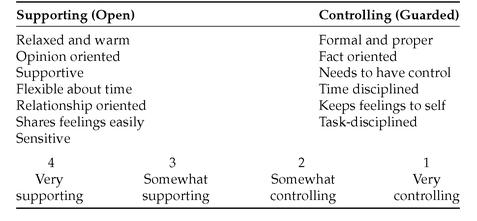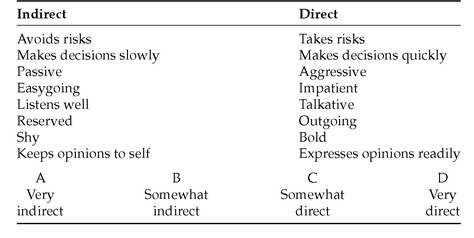WEEK 8
HIRE AN ASSISTANT
About 30 years ago, when I was just a kid starting out in sales, I hired a high school student to answer the phones for me after school. I still remember what a relief it was to have her handle the routine calls while I concentrated on doing what I do best—working with buyers and sellers.
After I had gained some experience and had more revenue flowing in, I added a secretary. Later I hired an assistant to handle my investment properties and another to help me with my closings. In time I delegated big chunks of my operation to assistants—marketing specialists, an in-house lawyer, my own CPA, and many, many more. These people represented my attempts to duplicate myself so that I could accomplish even more. Believe me, I could not possibly have handled the volume I was doing at the time without my dedicated group of assistants.
You cannot do it all by yourself, but this is exactly the approach many salespeople try when they want to sell more goods and services: They work harder and put in more hours. Eventually, they burn out. What they should be doing is adding personnel, at least one assistant to start. Hopefully, this chapter will convince you to hire your first (or next) assistant.
RECRUIT ASSISTANTS
I constantly recruit assistants and other talented individuals to become members of my team. After all, each person on my team is a revenue generator; the more revenue generators I have, the more profitable we become as a team. As long as you can manage your team’s growth, you should always be in the process of recruiting new members, who can then generate more revenue for the team.
Tip: Don’t focus your recruiting efforts solely on people in your industry. People in other industries, particularly those in customer-service positions, often make top recruits. You can teach new team members your business, but it is much tougher to teach them the people skills required to deal with clients.
Before approaching a prospective recruit, watch how the person interacts with others, including employees, colleagues, and the general public. Also observe how the person takes direction—is the person able to accept input and guidance while still being assertive with his or her own ideas or solutions? All these intangibles are more important than experience in your industry.
Network for Leads
When you start looking for a new assistant or other team member, tell everyone you know about the position you need to fill and the qualifications you’re looking for. Your most trusted friends and associates may have someone in mind who would be a good fit. Don’t rule out any sources for good leads. You can find qualified candidates at your car dealer, in a restaurant or hotel, or anywhere you can see people in action doing their jobs.
Tip: Even when you don’t have an opening, continue your recruiting efforts. Whenever you meet new people, ask them what they do and ask for their business card or contact information and then add them to your address book. When a need arises, you will have a complete database of individuals to contact to start your search.
Advertise Openings
If you documented your job as I recommended you do in Week 7, you should already have a pretty good idea of which tasks you want to assign to an assistant. Now, use your notes to write a job description and pare it down a bit to create an advertisement for the opening. Be sure to ask qualified candidates to submit a cover letter and resume.
You can post your want ad in the usual places, such as the local newspaper, but consider advertising on the Web, as well, including the following sites:
Consider contacting local colleges and high schools that have co-op programs. Many ambitious and talented high school students would jump at the opportunity to get real-world experience, and many of these “kids” have a great deal of technical know-how. I have hired high school students to do everything from planting For Sale signs to designing my web sites.
You can also locate virtual assistants with experience in the real estate industry by visiting any of the following sites (you will learn more about virtual assistants later in this chapter):
• International Virtual Assistants Association (IVAA) at
www.ivaa.org.
• Virtual Real Estate Assistant (VREA) at
vrea.com.
SCREEN THE CANDIDATES
After you have lined up a few promising candidates for a particular position, you have to assess their skills, personality, and character through skill assessments, interviews, and possibly even personality testing. In the following sections, I show you how to weed out the less promising candidates and zero in on the best of them.
Assess Skills and Experience
The first hurdle any candidate must clear is the skills and experience hurdle—the person must have the knowledge and skills required to do the job. If you need a personal assistant, for example, the right candidate must have excellent communications skills (written and verbal); be able to type and perform basic math; have some mastery of basic software, including a word processor, e-mail, and Web-based tools; and be able to answer phones, take messages, and manage your calendar.
To assess a candidate’s knowledge and skills, I recommend you do the following:
• Request transcripts. If the person claims to have a degree or certification, request proof, usually in the form of transcripts.
• Check references. Have each candidate complete a job application complete with references, and then follow up by checking those references.
• Test for the skills you need. Create your own tests to assess skills such as typing, performing basic math, writing ad copy, and developing presentations. You might even have the person type a letter for you or design a spreadsheet. (It is best to have the person perform the test at your office, so they cannot have someone else take the test for them.)
Perform a DISC Assessment
I recommend that you subject yourself and every candidate you seriously consider hiring as an assistant to a DISC assessment. (You need to assess yourself first to determine which tasks you are best suited to taking on and which tasks you would be better off delegating to others.) The DISC assessment is a personality test that helps determine personality types:
• Director: Characterized by control, power, and assertiveness. Ds are bottom-line people. Common phrases you might hear from a D are, “Let’s cut to the chase,” or, “Just get it done.” Others often perceive Ds as impatient and insensitive. Ds are typically in sales or leadership positions because they are strong closers and are result-oriented.
• Influencer: Influencers tend to be social butterflies—“the life of the party.” Common phrases you might hear from an I are, “Ooh, here’s an idea,” or, “Are we having fun yet?” Is are perceived as emotional and energetic. They have great people skills and gravitate toward sales and other positions with high profiles and frequent recognition opportunities.
• Supporter: Patience, persistence, and thoughtfulness required to carry out a task that supports the work of others. Ss are the nurturers and relaters; they live to serve and please others. They thrive on predictability, comfort and security. Common phrases you might hear from an S are, “Are you sure that’s safe?” “Whatever makes you happy,” or, “Whatever you think is best.” Ss are perceived as protective and supportive. They tend to gravitate toward positions with low risk or long-term stability that offer an opportunity to help others.
• Critical analyst: Structured and organized mind; tends to be very analytical and good at solving problems. Cs are perfectionists; they crave and thrive on order and process. Common phrases you might hear from a Care, “I need more information before I can make a decision,” or, “Getting it 100 percent right is far more important than how quickly it gets done.” Cs are perceived as analytical, critical, and inflexible. Cs gravitate toward positions that require great attention to detail, thoroughness, and accuracy.
Generally speaking, people who are directors or influencers are usually better at working with people—managing other team members and dealing with customers. Supporters and critical analysts are better equipped at completing specific tasks and solving day-to-day problems. These are your behind-the-scenes people, who make sure the office runs smoothly and transactions are processed correctly and efficiently.
Every individual has a little D, I, S, and C, but one of the four personality types tends to be more prominent than the others. The DISC assessment helps identify each candidate’s most prominent personality type. Employers who use the DISC assessment find that it helps cut down significantly on turnover, because they can hire the person who’s the right fit from the very start.
Caution: People have a tendency to hire others who have personalities similar to their own. This could be a big mistake. If you hire a director type to be your assistant, you could have a serious power struggle on your hands. Hire the right personality for the right position. The DISC assessment can help.
Administer the Assessment
My colleague and friend Howard Brinton of Star Power Systems (
www.gostarpower.com) created his own DISC assessment, which is easy for any applicant to take. First, the applicant selects where he or she falls on a
supporting versus controlling continuum; then the person chooses where he or she falls on a
direct versus indirect continuum. The combined result for these two categories defines which of the four personality styles the person relates to most closely—D, I, S, or C.
Supporting (Open) versus Controlling (Guarded) Do you consider yourself to be more supporting, or more controlling?
Table 8.1 contains some indicators to help you distinguish between the two. After the table, mark a spot (a vertical line) on the continuum where you feel you fall.
Direct versus Indirect Do you consider yourself to be more direct, or more indirect? Here are some indicators to help you distinguish between the two (
Table 8.2). After the table, mark a spot (a vertical line) on the continuum where you feel you fall.
Analyze the Results After the applicant completes this simple DISC assessment, transfer their marks to the grid in
Figure 8.1. For example, if the person marked 2 (somewhat controlling) on the first continuum and B (somewhat indirect) on the second continuum, mark 2 and B on the grid below. Extend a line through each mark, so the two lines intersect. The quadrant in which the two lines intersect tells you the person’s predominant personality type—D, I, S, or C.
Use DISC Results to Screen Applicants
As a D-personality salesperson, you may be more inclined to select an assistant who has a D- or I-personality, but that may not be the best choice. If you truly want someone who can do what you do and act as a partner, you may want someone who has a D-or I-personality, but if you are looking for an assistant to handle phone calls, fill out paperwork, file documents, and manage your schedule and accounting, you are likely to be better off choosing someone with an S- or C-personality—someone who can act in a supporting role and who doesn’t want your job.
Interview Candidates
The skills and DISC assessments should help you screen out all but the most qualified and well-suited candidates. The next-to-final step in selecting the best person for the position is to interview the candidates. In the following sections, I offer some guidelines that can help you conduct an effective interview.
Start with General Questions
Spend some time getting to know the candidate as a person. Start with general questions that don’t pertain specifically to the job at hand. If you are unaccustomed to interviewing people, here are some questions that encourage the candidate to open up:
• Are you currently employed? (If you are, why are you looking to leave your current employer?)
• What do you feel is your biggest accomplishment in life?
• What are your future goals?
• What was your worst customer service experience and how would you have handled it differently?
• Describe your best boss.
• Describe your worst boss.
Share Your Expectations
Share your goals with each candidate and describe your team’s philosophy and work ethic, so the person is well aware of your expectations. Write down everything you bring to the relationship and present it to each candidate during the interview. For example, let candidates know about the type of training you provide, the opportunities for earning bonuses or commissions, the resources at your disposal, your corporate culture, and opportunities for advancement.
As you interview candidates, make sure they understand what you are looking for in terms of experience, skills and attitude. Present a detailed job description and explain what you expect. If you are willing to provide training, let the person know that although you expect him or her to ultimately be able to meet the job requirements, you will provide the necessary training and resources.
Ask the candidate how he or she feels about your expectations. Explain that finding the right match is best for both of you. If he or she accepts the position and cannot fulfill the requirements, this person is unlikely to be happy working as part of your team. Encourage the person to be honest and open—after all, honesty and openness will be required when you start working together.
Encourage the Candidate to Ask Questions
Invite the candidate to ask any questions about the position, the company, the industry, and so on. Seeing what types of questions a candidate asks provides great insight into the person’s capabilities and interest in the job. It also allows you to gauge the person’s communication skills and professionalism. A good candidate should always have questions prepared ahead of time; think twice about considering someone who claims to have no questions at all.
VISUAL OR VIRTUAL?
Keep in mind that assistants can be visual or virtual. A visual assistant is one who is physically present—an in-house staff member. A virtual assistant is a freelancer—a self-employed business owner who conducts business primarily over the Internet. You can use both types of assistants to increase your office productivity, but virtual assistants allow you more flexibility in scaling your workforce up or down depending on how busy you become.
Virtual assistants can do everything visual assistants do, from handling direct mailings and setting up drip e-mail campaigns to managing your e-mail and schedule, creating and managing web sites and blogs, and handling your marketing and public relations.
RETAIN YOUR BEST ASSISTANTS
Finding an outstanding assistant requires a great deal of time and effort, so do your best to keep the high-quality assistants you eventually hire. Here are some suggestions that can help you retain your best assistants:
• Hire the best people you can get, so you will remain satisfied with their performance.
• Assign meaningful job titles. Very few people like to be known as an “assistant.” Create titles that convey a sense of importance, such as Sales Executive, Marketing Manager, or Director of Operations.
• Train the people you hire. As discussed in Chapter 7, you should have detailed procedure manuals.
• Equip your assistants. Provide them with the tools and resources they need to successfully complete their missions.
• Trust your assistants. Give your assistants real freedom and responsibility to make decisions. Step in only when necessary.
• Compensate assistants accordingly. Pay your assistants the going rate or better. Find other ways to reward them. Some people value status or free time to spend with their family more than money; find out what each assistant values most and reward them with it.
• Be kind to your assistants—like you, they are only human.
Ralph’s Rule: If you do not have an assistant, you are one—you are your own assistant, doing much of the work that one or more assistants could be doing for you. Document everything you do, highlight the tasks you can safely delegate to others, and then hire an assistant to take on these chores.



